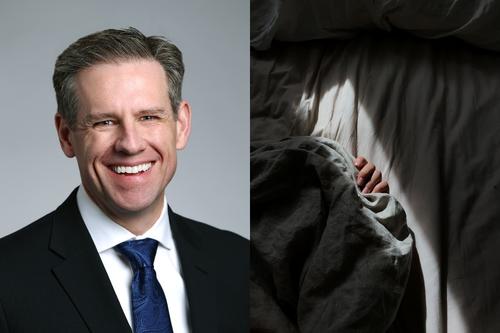
With the weather getting cooler and the days shorter, individuals may notice that they have more difficulty sleeping. A recent study noted that exposure to daytime light has a positive impact on sleep and mood in the evening.
University of Minnesota Medical School expert Michael Howell speaks about how being outdoors is important to having a restful sleep.
Michael Howell
“Sleep is critically important for brain and body health, yet most people don't sleep well. This has consequences ranging from car accidents to missed free throws. Fortunately a solution to better sleep is right outside the door. An excellent first step to better circadian health is exposure to nature and natures rhythms — such as the sun rising and setting along with daily fluctuations in temperature — which subconsciously drive your body's 24 hour rhythm.”
“I use these strategies, and more, to help athletes — whether in a high school, professional leagues or preparing for the Olympics — improve their performance.”
“Better sleep and circadian health is often the critical step in athletic performance. Especially for athletes and active people, you don't know how great your game can be until you have great sleep.”
Contact
Michael Howell
Neurologist at the U of M Medical School and M Health Fairview
[email protected]
Download a high resolution photo or Dr. Howell.
Specializing in sleep disorders, Dr. Howell is an associate professor at the U of M Medical School and is the medical director of M Health Fairview’s Sleep Performance Training program for Athletes. His clinical interests include sleepwalking and related disorders such as REM Sleep Behavior Disorder, Sleep Related Eating Disorder, sleep seizures and other violent sleep behaviors.
He is conducting a clinical study that is looking at how sleep strategies can improve physical performance and mental alertness in athletes ages 13 and over. To participate, complete the form on the Fairview website.
-30-
About the University of Minnesota Medical School
The University of Minnesota Medical School is at the forefront of learning and discovery, transforming medical care and educating the next generation of physicians. Our graduates and faculty produce high-impact biomedical research and advance the practice of medicine. We acknowledge that the U of M Medical School, both the Twin Cities campus and Duluth campus, is located on traditional, ancestral and contemporary lands of the Dakota and the Ojibwe, and scores of other Indigenous people, and we affirm our commitment to tribal communities and their sovereignty as we seek to improve and strengthen our relations with tribal nations. For more information about the U of M Medical School, please visit med.umn.edu.
- Categories:
- Health




